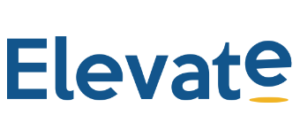Estimates from Gartner suggest that the business value of artificial intelligence will reach a whopping $3.9 trillion by 2022.
The firm suggests that the majority of this growth will initially be driven by AI’s ability to process large datasets at a blazingly-fast pace and in unique ways. This power continues to open up exciting new possibilities for countless industries.
Recruitment is one of those industries: according to LinkedIn, 76% of recruiters believe that AI will have a somewhat significant impact on our industry.
A subsection of those recruiters wonders whether AI will prove itself as a threat to the recruitment industry. Could machines and unfeeling logic make recruitment less human?
On the contrary, we believe that AI will make recruitment more human than ever before.
Here’s How AI Will Enhance The Human Element in Recruitment
There’s a very high chance that the emergence and proliferation of AI will result in more human-oriented recruitment. Here’s a look at the five ways AI is likely going to enhance the human element:
1. Reduce unconscious bias
Countless studies have shown that diverse workforces are happier, more productive and more innovative. A blend of backgrounds and characters also mean that companies benefit from a potent mixture of skills and experiences.
Unfortunately, unconscious bias in recruitment can make it challenging to cultivate a genuinely diverse workspace. Despite best efforts, the majority of recruitment professionals form unconscious opinions on their candidates based on small amounts of information.
We are social creatures, and we can’t help but demonstrate unconscious biases. Anything from the intonation of a person’s voice to the clothes that they wear will register on some level.
AI is already proving to be a powerful tool in the fight against bias and discrimination, though: several AI-driven technologies can help to surface the most appropriate candidates and assist with blind hiring.
In this sense, AI-driven recruitment is empowering recruiters to eliminate unconscious bias so that they can put together fantastic teams.
2. Free up recruiters’ time
Recruitment professionals often display solid interpersonal skills that they use to put together strong teams. They’ll rely on those abilities to identify future needs, source the right candidates, design job descriptions and much more.
Unfortunately, several repetitive tasks can make it difficult for recruitment professionals to focus on the core job. All too often, recruiters are stuck filing paperwork, fiddling with various job platforms and trying to keep a keen eye on the latest employment laws.
In this sense, AI is a big help. It can take care of repetitive tasks so that recruiters are better able to focus on the human side of their work, resulting in better outcomes for businesses and candidates alike.
3. Personalise learning and development
Companies that offer comprehensive training programs often enjoy a 218% higher income per employee when compared to those businesses that don’t invest in training. Unfortunately, many companies struggle to get the most from training programs. They might find it challenging to get started at all.
Thankfully, AI can offer exciting insights into the skill sets and preferences of candidates, helping businesses to place a strong focus on developing the potential of each employee with catered learning and development courses.
This feature of AI can help recruiters to understand better their candidates and how they might develop in a given role, again emphasising the individual.
4. Increase hiring volume for businesses
According to figures from Workable, the average time to hire is around a month. This will vary, of course, according to factors like the position and region. That’s quite a significant amount of time, though, and it means that recruiters often struggle to fuel their company with quality candidates regularly.
Thankfully, AI can help to expedite the time to hire allowing recruiters access to quality candidates in record time and then do what they do best – work to assess and develop that person’s skill set.
With AI giving recruiters a helping hand, those professionals will find it easier to build large and diverse teams.
5. Drive demand for more human-oriented HR professionals
As we watch AI transform the recruitment industry over the coming years, we’ll be sure to notice how the desired skillsets for recruiters shift. With AI taking care of the repetitive activities and sourcing of quality candidates, we’ll see businesses search for recruiters who have incredibly strong and insightful interpersonal skills.
With AI working away behind the scenes, the spotlight will be firmly on recruiters and their ability to assess the character of their candidates. In this sense, AI will undoubtedly help to bring about the human side of recruitment.
Recruiters will be better able and more free to forge authentic connections with their candidates and help to create more human workplaces.
Unlock the Power of AI-Driven Talent Intelligence with Elevate
Here at Elevate, we’re incredibly excited about the potential of AI to reveal the human side of recruitment. Are you ready to leverage the real power of talent intelligence? Learn more about Elevate AI and how our platform can help you to retain, engage and attract the best talent.
